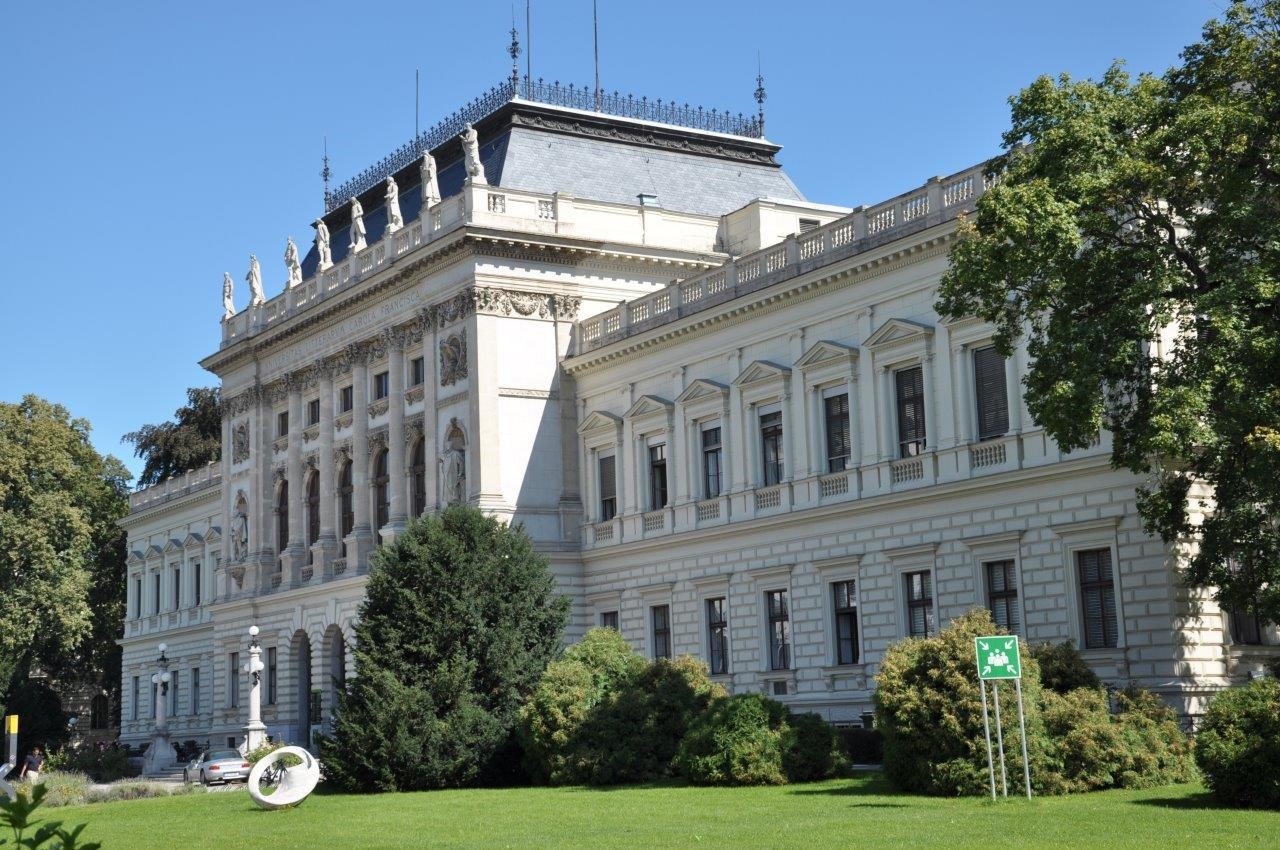With 32,500 students and 4,300 employees in research, teaching and administration, the University of Graz, which was founded in 1585, is one of the largest, most traditional and innovative universities in Austria. Its range of studies in six faculties is defined by great variety and scope. Currently, students can choose between more than 120 bachelor’s, master’s, diploma and doctoral programmes.
The University has a strong international profile and is involved in numerous global networks (e.g. Coimbra Group and Utrecht Network). Through these networks and various projects and activities, it is connected with about 500 international partner institutions. The University’s expertise includes the implementation and administration of international research and educational projects with partners from around the world.
As a modern place of science, the University of Graz bundles top-quality research on an international level in seven core fields. Decades of cooperation with partner institutions from South-East European countries have not only led to the establishment of a “South-East European” focus at the University, but also ensure that the University of Graz consistently develops its central role in South-East Europe.
With the initiation of interdisciplinary partnerships, the University of Graz is an important key-player in Styrian business and research. Styria’s largest university is very well linked via NAWI, its successful cooperation programme with Graz University of Technology and with Graz University of Teacher Education. Moreover, the University permanently seeks innovative methods to collaborate more strongly on an inter-university level: the BioTechMed platform focuses on closer cooperation between the University of Graz, Graz University of Technology and the Medical University of Graz in the fields of human technology, medicine, pharmacy and psychology, with the aim of conducting shared research relating to health issues.
The University of Graz is also aware of its social responsibility. In the frame of the platform “The 7th Faculty, Centre for Society, Knowledge and Communication”, it addresses people beyond the scope of traditional studies and makes university education accessible to the public.


